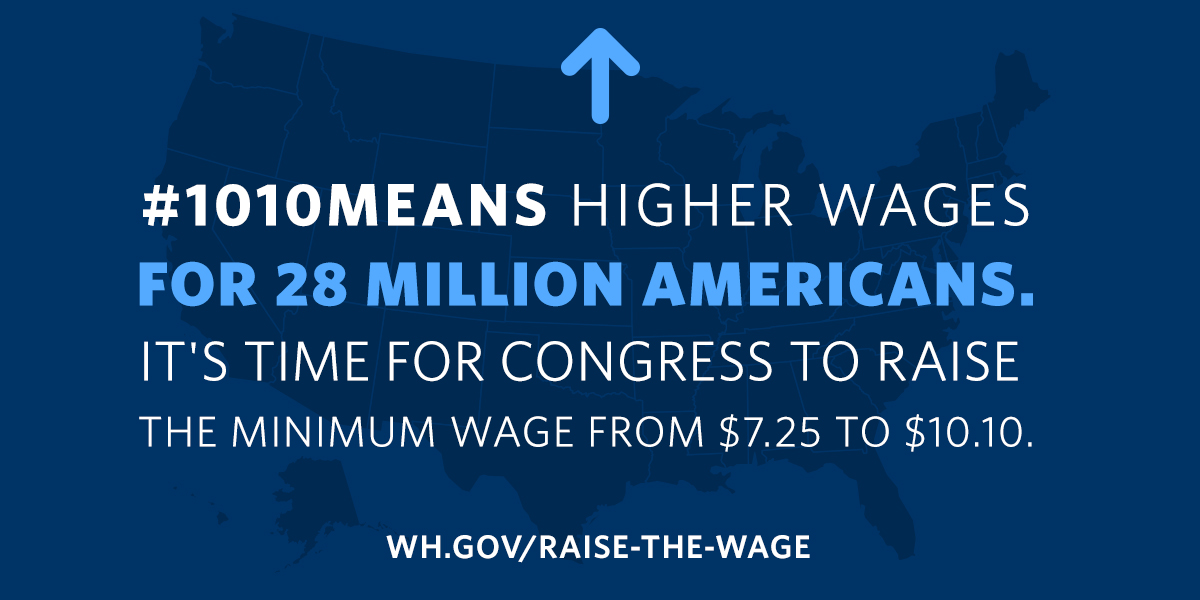It will give businesses customers with more spending money.
It will grow the economy for everyone — and we can do it right now.
In the 2014 State of the Union address, President Obama called again on Congress to raise the national minimum wage, this time from $7.25 to $10.10 an hour, and soon after signed an Executive Order to raise the minimum wage to $10.10 for the individuals working on new federal service contracts.
Raising the minimum wage nationwide will increase earnings for millions of workers, and boost the bottom lines of businesses across the country. While Republicans in Congress continue to block the President's proposal, a number of state legislatures and governors, mayors and city councils, and business owners have answered the President’s call and raised wages for their residents and employees. Read a report on the progress that's been made so far across the country.
Learn more below about why we need to raise the wage, and share this page with your friends and family.
October 10, 2014
Why We Need to Raise the Minimum Wage, in Less Than Two Minutes:
You've heard the President call on Congress to raise the national minimum wage to $10.10. Here's why that's so important, and who it would help — in less than two minutes. You just might be surprised by what you didn't know.
This first map shows the current minimum wage for each state, as well as the number of workers in each state that would be affected by raising the wage to $10.10.
Choose a resource on the right side of the map, and click on a state for more information.
In this second map, you'll see how raising the wage could help workers make ends meet. For example, a $10.10 wage could, over the course of a year, help a full-time, full-year minimum-wage worker in Arizona afford either 4 months of rent, 24 weeks of groceries, 68 tanks of gas, or the equivalent of 31 months of electricity.
Raising the federal minimum wage would not only benefit more than 28 million workers across the country, but 19 million workers from all types of households would see a direct increase in their wages.

Today, the real value of the minimum wage has fallen by nearly one-third since its peak in 1968. And right now, a full-time minimum wage worker makes $14,500 a year, which leaves too many families struggling to make ends meet.

Since President Obama called for a minimum wage increase to $9.00 in his 2013 State of the Union address, 13 states and Washington, D.C. have passed laws to raise their minimum wage. According to estimates from the Council of Economic Advisers, about 7 million American workers will benefit from these increases as of 2017.

Spread the word to friends and family


